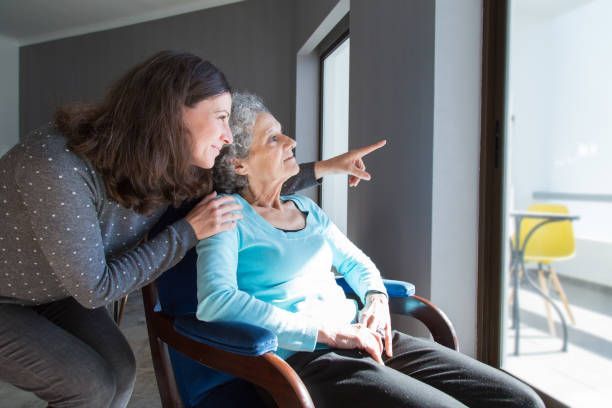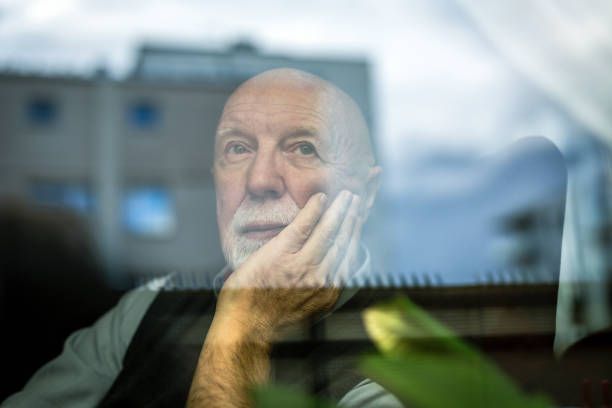Colonoscopy: A Vital Procedure for Preventive Health
Colonoscopy: A Vital Procedure for Preventative Health
Preventative care is a cornerstone of maintaining long-term health and well-being, and at 7 Day Home Care, we have witnessed firsthand the profound impact it can have. Over the years, we have provided in-home care services for many individuals battling cancer, underscoring the critical need for early detection and intervention. Among the most vital preventative measures is a colonoscopy, a procedure that can detect colorectal cancer and other serious conditions before they become life-threatening. By prioritizing preventative care, such as regular colonoscopy screenings, individuals can significantly reduce their risk of developing advanced cancer, ensuring a better quality of life and peace of mind.

What is a Colonoscopy?
A colonoscopy is a medical procedure that allows doctors to examine the inner lining of the large intestine (colon and rectum) for abnormalities and diseases, such as colorectal cancer. At 7 Day Home Care, we believe in the importance of preventive healthcare and aim to educate our readers on vital procedures like colonoscopies. This guide will provide you with detailed information about what a colonoscopy entails, its significance, preparation tips, and what to expect before, during, and after the procedure.
Why Colonoscopies Are Important
Colorectal cancer is one of the leading causes of cancer-related deaths. However, it is highly preventable and treatable if detected early. A colonoscopy is the gold standard for colorectal cancer screening and plays a crucial role in early detection. Besides cancer, colonoscopies can help diagnose conditions like inflammatory bowel disease (IBD), diverticulosis, and polyps, which can be precursors to cancer.
Who Should Get a Colonoscopy?
- General Screening: It is recommended that individuals at average risk for colorectal cancer start screening at age 45.
- Family History: Those with a family history of colorectal cancer or polyps may need to start screening earlier.
- Personal History: Individuals with a history of IBD, previous polyps, or other risk factors might require more frequent screenings.
- Symptoms: Anyone experiencing symptoms such as rectal bleeding, persistent abdominal pain, or changes in bowel habits should consult a healthcare provider for a possible colonoscopy.
Preparation for a Colonoscopy
Proper preparation is essential for a successful colonoscopy. Here’s a step-by-step guide to help you prepare:
- Dietary Restrictions: A few days before the procedure, your doctor will likely recommend a low-fiber diet, followed by clear liquids the day before. Avoid solid foods, red or purple liquids, and dairy.
- Bowel Preparation: You will be given a laxative solution to clear your intestines. This is often referred to as a "bowel prep" and involves drinking a prescribed solution the evening before and sometimes the morning of the procedure.
- Medications: Inform your doctor about all medications and supplements you are taking. You may need to adjust certain medications before the procedure.
- Arrange Transportation: Since you will be sedated during the procedure, arrange for someone to take you home afterward.
The Colonoscopy Procedure
Understanding what happens during a colonoscopy can help alleviate anxiety:
- Sedation: Upon arrival, you will be given a sedative to help you relax and minimize discomfort. You may be fully asleep or in a twilight state.
- Examination: The doctor will insert a colonoscope (a long, flexible tube with a camera) into the rectum and guide it through the colon. The camera transmits images to a monitor, allowing the doctor to examine the colon’s lining.
- Polyp Removal: If polyps or abnormal tissue are found, they can be removed during the procedure and sent for biopsy.
- Duration: The entire procedure typically lasts between 30 to 60 minutes.
After the Colonoscopy
Post-procedure care is essential for a smooth recovery:
- Recovery: You will spend some time in a recovery area until the sedative wears off. It’s normal to feel bloated or pass gas due to the air introduced into the colon during the exam.
- Diet: You can usually resume your normal diet, but it’s advisable to start with light meals.
- Results: Your doctor will discuss the findings with you. If biopsies were taken, it might take a few days to receive the results.
- Follow-Up: Based on the findings, your doctor will recommend when to schedule your next colonoscopy or follow-up tests.
Colonoscopy Risks and Complications
While colonoscopies are generally safe, it’s important to be aware of potential risks:
- Bleeding: Slight bleeding may occur, especially if polyps are removed.
- Perforation: A rare but serious risk where a tear in the colon wall may occur.
- Reaction to Sedation: Some individuals may experience side effects from the sedative.
- Infection: Although uncommon, there is a small risk of infection.
At 7 Day Home Care, we are committed to promoting health and wellness through preventive care. A colonoscopy is a crucial procedure for detecting colorectal cancer and other intestinal issues early. By understanding the importance of this procedure, how to prepare for it, and what to expect, you can approach your colonoscopy with confidence and peace of mind. If you have any concerns or need assistance, our team is here to support you every step of the way. Remember, early detection saves lives—schedule your colonoscopy today.
The information provided in this article by 7 Day Home Care is intended for general informational purposes only and should not be construed as medical advice, diagnosis, or treatment. Always seek the advice of your physician or other qualified healthcare provider with any questions you may have regarding a medical condition or procedure. Never disregard professional medical advice or delay in seeking it because of something you have read in this article. 7 Day Home Care does not endorse any specific tests, physicians, products, procedures, opinions, or other information mentioned herein.
At 7 Day Home Care, we are dedicated to promoting health and wellness through preventive care measures like colonoscopy screenings. By understanding the importance of early detection and taking proactive steps to monitor your health, you can significantly reduce your risk of serious illness and maintain a higher quality of life. Don't wait until it's too late—schedule your colonoscopy and take control of your health today. For more information or to discuss how we can support your health and well-being, contact us today at 516-408-0034. Your health is our priority, and we are here to help every step of the way. 7 Day Home Care is licensed by the New York State Department of Health to provide in-home care services in Manhattan, Queens, Brooklyn, Nassau County, and Suffolk County, New York.
Brian Callahan
7 Day Home Care










